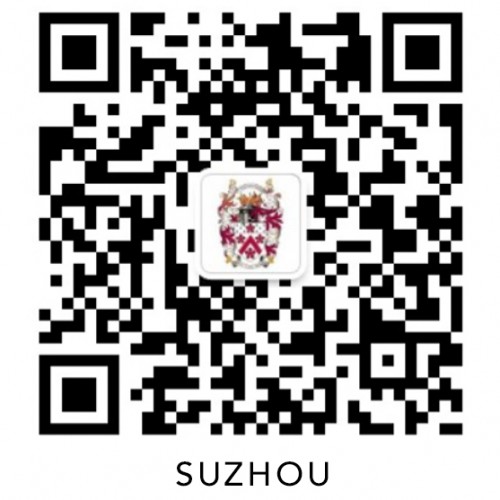Subject Spotlight: Learning History in a New Way
Have you ever wondered how our expert teachers plan and deliver lessons that help students reach their full academic potential? Last time we posted our Subject Spotlights series of Business, English A, English B, chemistry, physics, drama, CS, Geography music, ESS and maths. Now let's see how our teaching history makes a difference to our students!
This time we interviewed Mr Stephen DAMPIER, Humanities Teacher, Head of Year 9 at Senior School, who gave us some insights into the history Studies at our college.
Hello, Mr Dampier! First of all could you please introduce yourself and your teaching background?
I am Mr Dampier, a seasoned educator with a diverse and extensive background in teaching across international settings. Throughout my 15-year teaching career, I have had the privilege of imparting knowledge and nurturing young minds in various countries, starting from the United Kingdom and spanning through Thailand, Qatar, and currently at Dulwich College Suzhou in China.
In addition to my teaching role, I serve as an IGCSE examiner for Cambridge, where I contribute to assessing and evaluating students' knowledge and understanding in history. Furthermore, my leadership experience extends to being the Head of Year 9 at Dulwich College Suzhou, which involves guiding and supporting students through a crucial stage of their academic and personal development. Before my tenure at Dulwich College Suzhou, I held the position of Head of Humanities at Dulwich Zhuhai.
Could you briefly introduce the courses you teach at DCSZ?
At DCSZ our curriculum spans a spectrum of academic offerings, from the immersive Key Stage 3 Humanities course that seamlessly integrates history with other disciplines such as Geography, to the rigorous IGCSE History program that delves into the complexities of 20th-century history.
Specifically, the IGCSE History curriculum at DCSZ is a captivating exploration of 20th-century history, tracing pivotal events from the signing of the peace treaties post-World War I to the momentous conclusion of the Cold War marked by the fall of the Berlin Wall. In addition, students partake in a detailed study focusing on Germany between the two World Wars, providing a nuanced understanding of the socio-political landscape of that tumultuous period.
Furthermore, our IBDP History curriculum offers a comprehensive overview of significant historical themes, ranging from the evolution of American civil rights movements to the intricate histories of Japan and Korea. By immersing students in these multifaceted historical contexts, we aim to cultivate critical thinking skills, foster a deeper appreciation for global perspectives, and inspire a lifelong passion for history and learning.
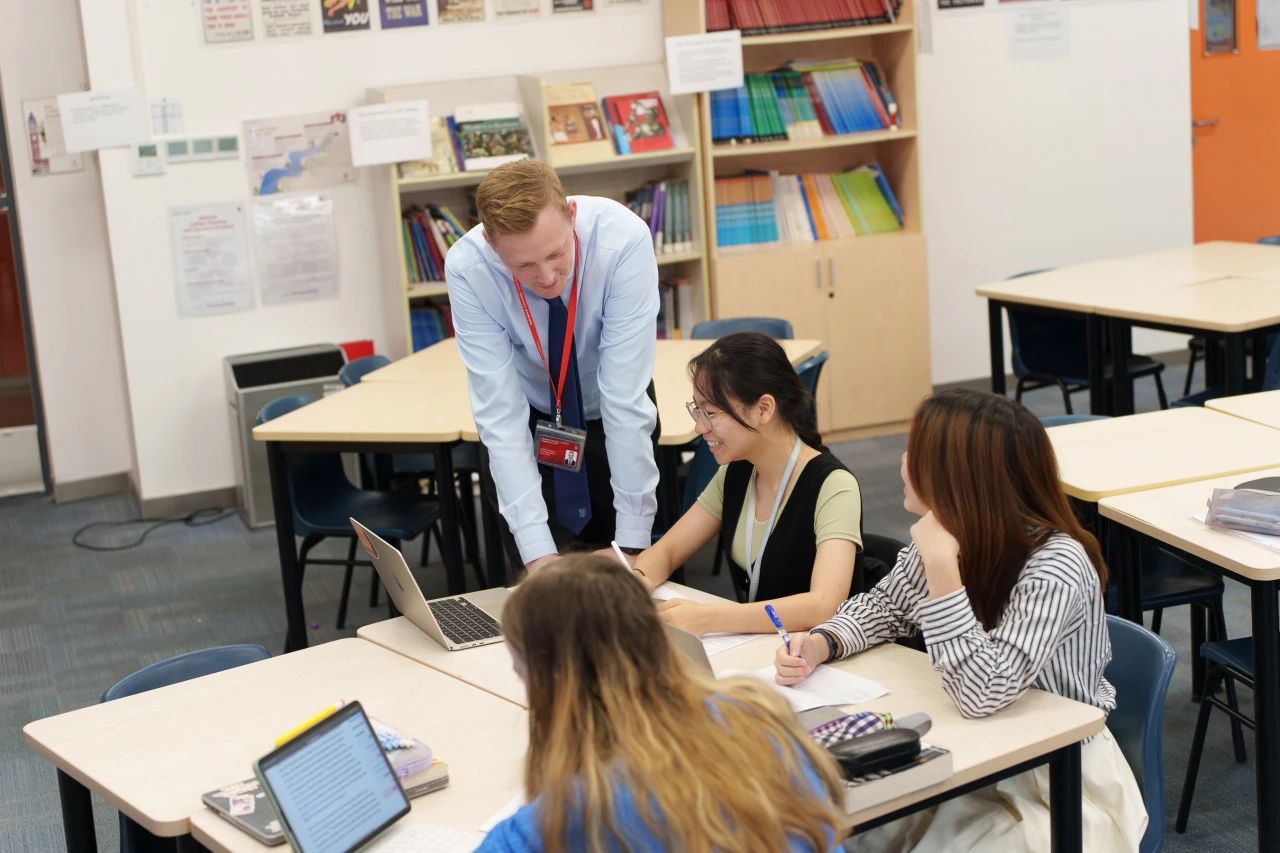
Thanks for that introduction! We recently finished the residential trips to Vietnam and Cambodia. Could you please share what the students did during the trips and what they learned from them?
During our recent educational trips to Vietnam and Cambodia, students were immersed in a series of impactful experiences intricately intertwined with our academic curriculum. In Ho Chi Minh City, the visit to the War Remnants Museum provided students with profound insights into the lasting impacts of the Vietnam War, offering a glimpse into historical relics and narratives that shaped the region.
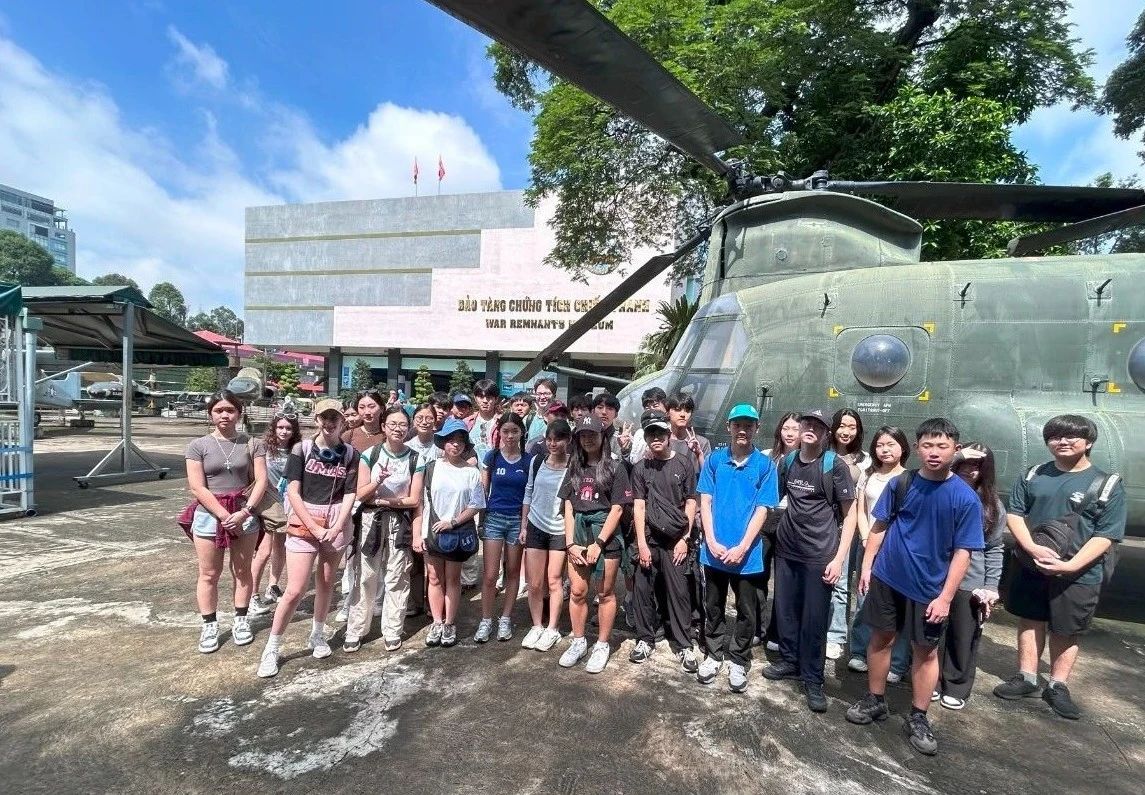
Exploring the Cu Chi Tunnels allowed students to understand the elaborate underground networks utilised during the Vietnam War, bringing to life the complexities of wartime strategies and survival tactics. The visit to Phnom Penh in Cambodia, including stops at the Tuol Sleng Genocide Museum and the Killing Fields, confronted students with the harsh realities of the Khmer Rouge regime, fostering reflection on the atrocities of the past and the resilience of the human spirit.
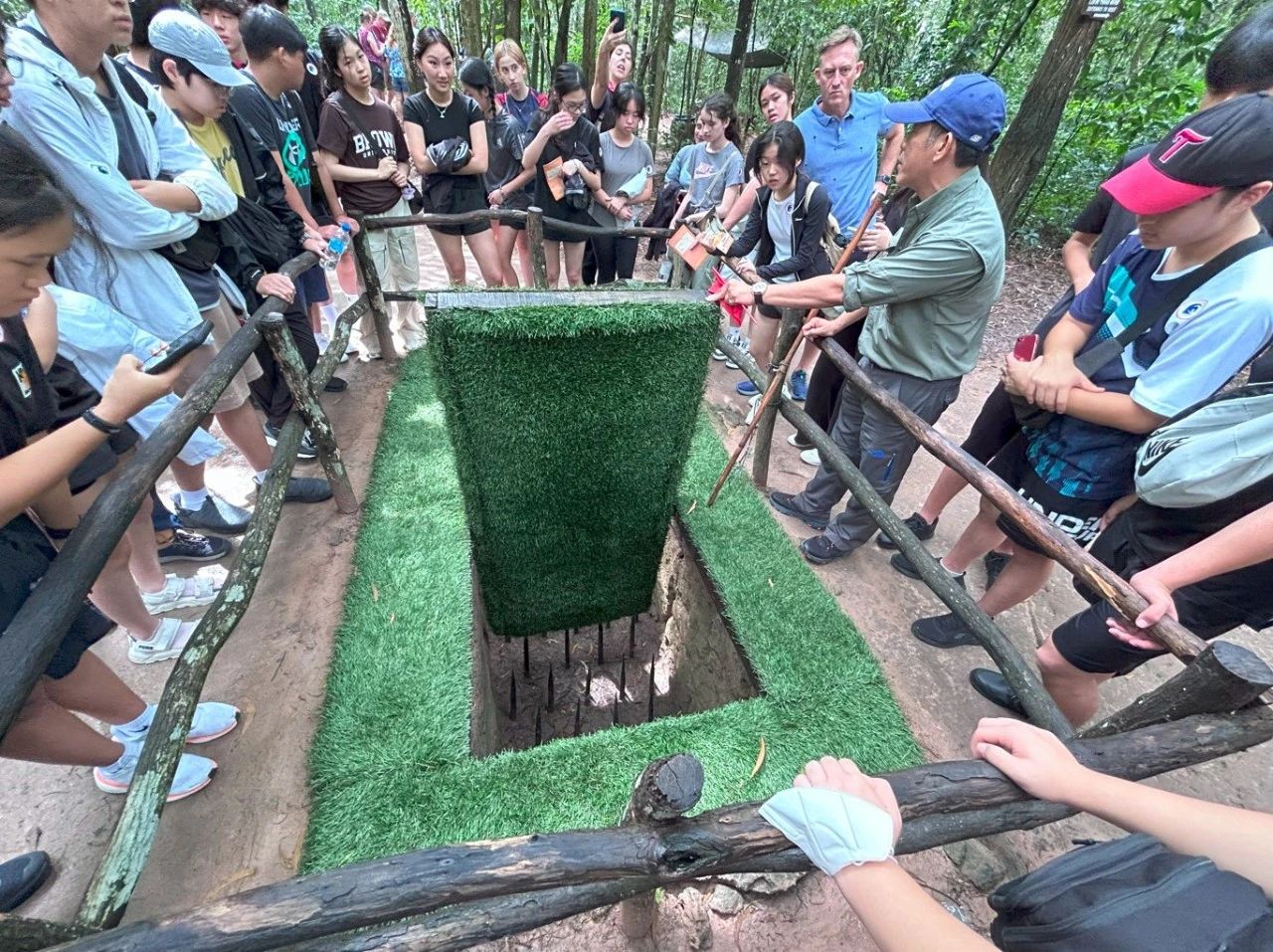
Journeying to Angkor Wat in Siem Reap revealed the grandeur of ancient temples and the rich history of this UNESCO World Heritage site, igniting historical curiosity and deep respect for the architectural and cultural achievements of ancient civilisations. Through these diverse experiences, students were able to develop a multi-dimensional understanding of historical events, nurturing empathy, honing critical thinking skills, and fostering cross-cultural awareness among their peers and within themselves.
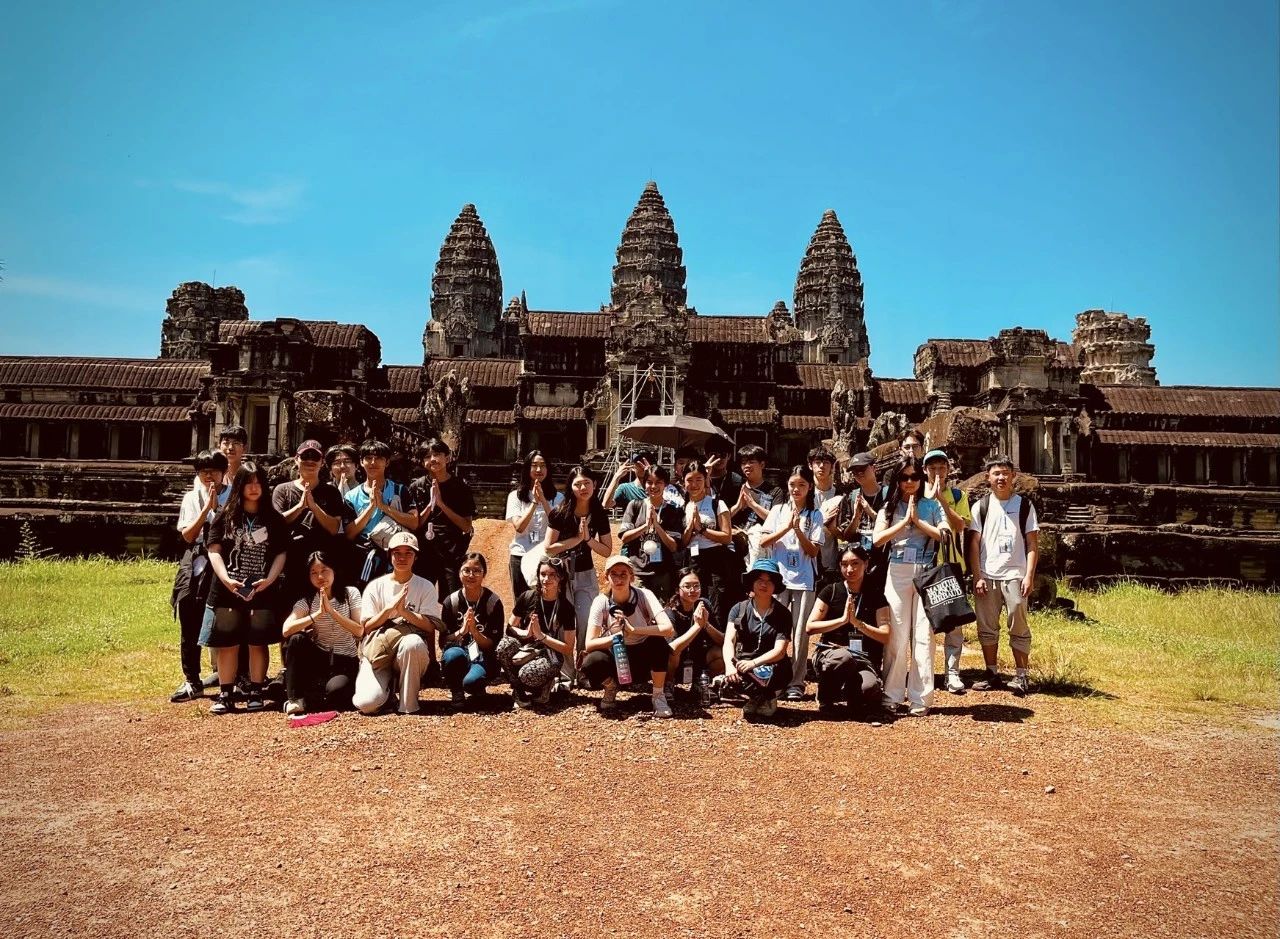
Reflecting on what they learned, students likely shared astonishment at the resilience of individuals amidst conflict, empathy for the victims of historical atrocities, and a newfound appreciation for the complexities of past events. They may have also expressed a heightened curiosity about different cultures, a deeper understanding of the interconnectedness of global histories, and a sense of responsibility to preserve and learn from the lessons of the past.
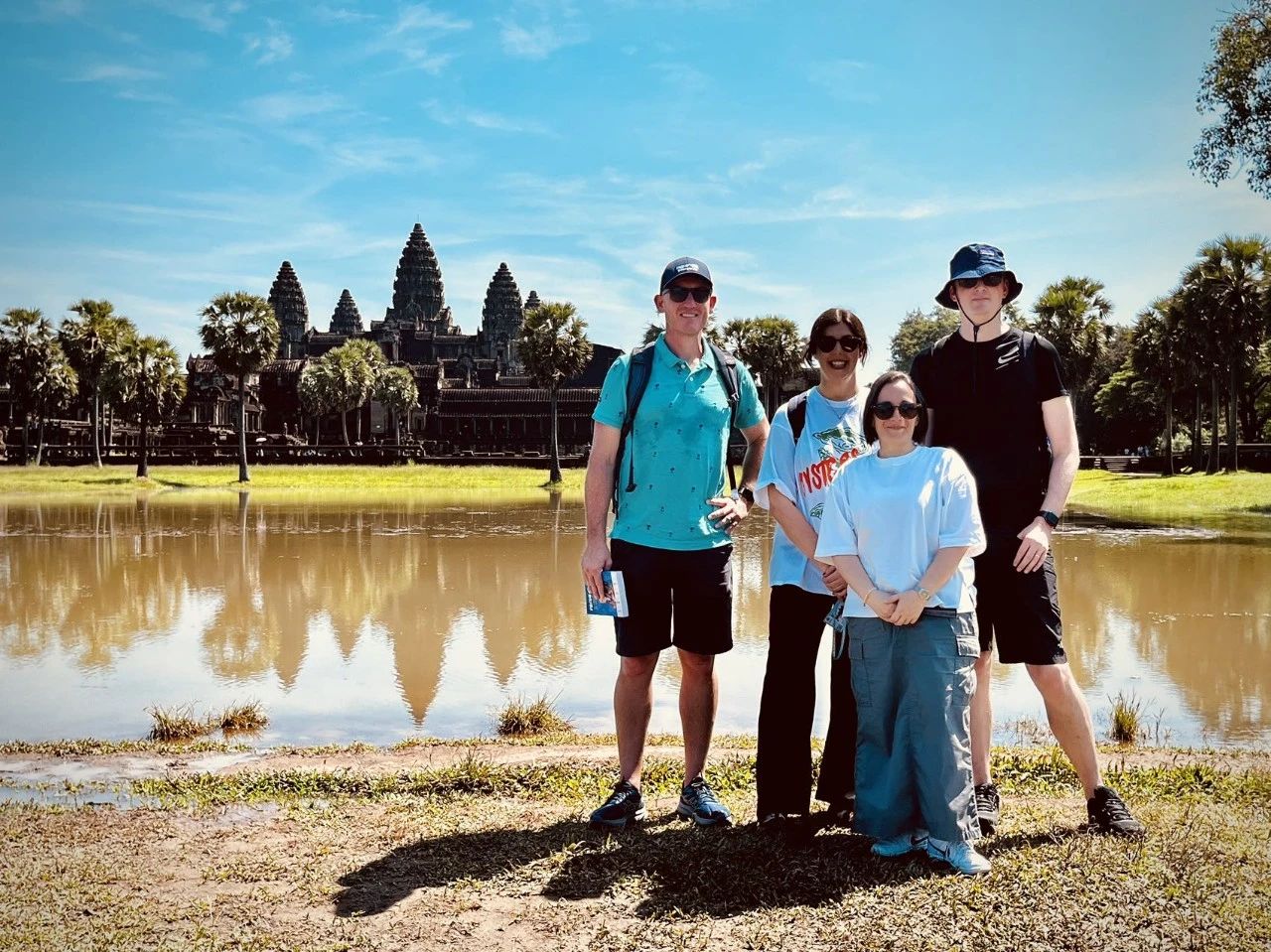
Beyond subject learning, how did these trips and the history course prepare students to Live Worldwise?
These excursions and our history courses extend beyond traditional academic boundaries, offering students a unique opportunity to cultivate essential skills for an increasingly interconnected global landscape. Through hands-on experiences with diverse cultures and historical narratives, students are equipped with invaluable qualities such as empathy, cultural acumen, and a profound sense of global citizenship.
By engaging deeply with various cultural perspectives and historical contexts, students develop a heightened capacity for empathy. This fundamental trait allows them to understand and relate to individuals from different backgrounds with sensitivity and insight. This experiential learning fosters a broader understanding of the complexities and nuances of human experiences across time and place.
What strategies did you use to support students’ learning in history? (Given our students' international backgrounds, how can we further support them in learning history?)
I aim to enrich students' historical education; I implement active teaching that incorporates interactive elements, multimedia resources, and collaborative projects tailored to accommodate our diverse student body. Through a deliberate emphasis on cultivating critical thinking skills and fostering contextual understanding, these strategies are designed to establish an immersive learning environment that resonates with our international learners. I want to create a vibrant and engaging educational atmosphere that encourages active participation and deepens students' comprehension of historical concepts.
By encouraging students to think critically, analyse historical contexts, and engage in collaborative endeavours, my aim is to enhance their academic understanding of history and nurture a sense of curiosity and appreciation for the complexities of the past. Through these tailored strategies, I endeavour to instil in students a passion for historical inquiry and equip them with the skills necessary to navigate the intricacies of historical narratives in a globally interconnected world.
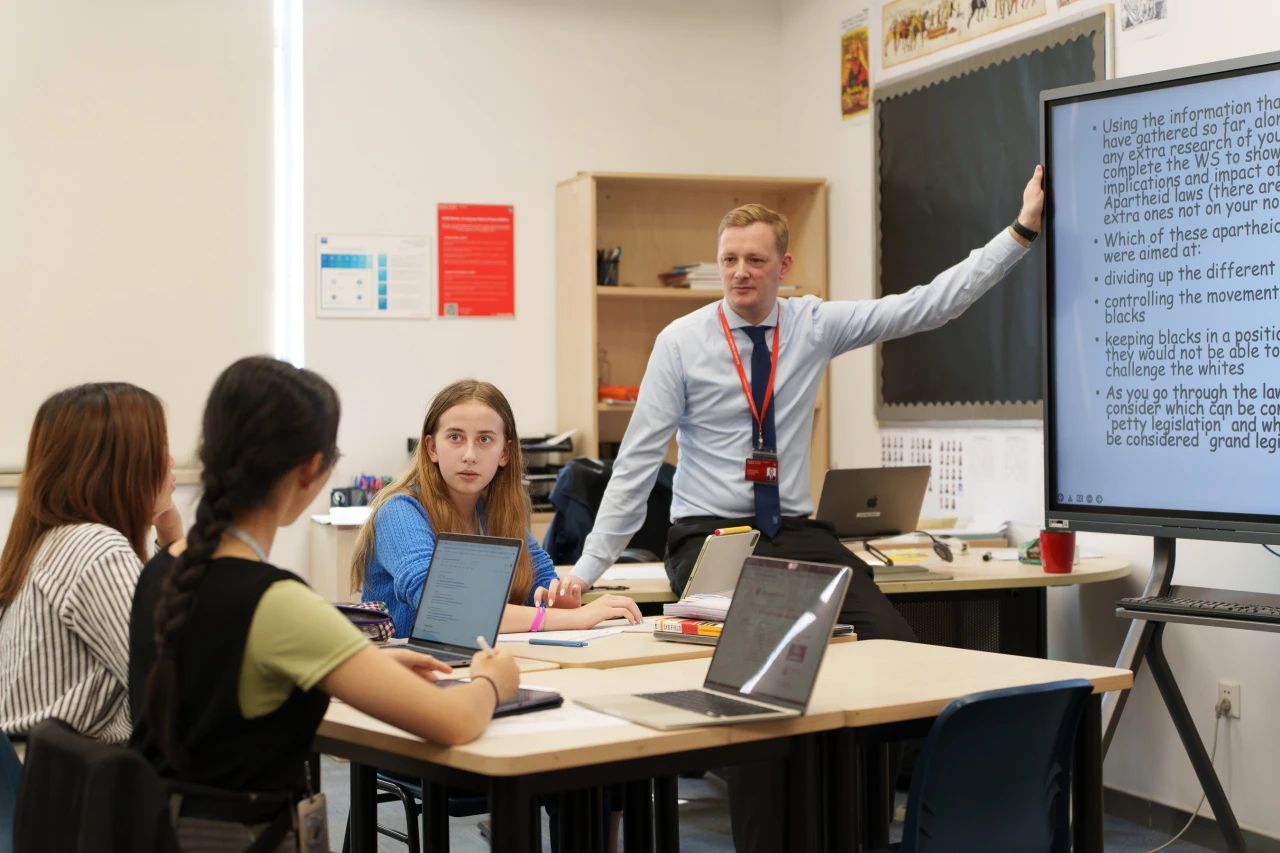
What can students do to continue improving their history learning?
Students can enrich their historical understanding outside of traditional classroom instruction through active engagement.Students can deepen their analytical skills and historical insights by nurturing curiosity, promoting self-directed study, and facilitating group discussions, fostering a sustained passion for learning and history.
I emphasise the educational and entertaining value of watching documentaries and historical films beyond class hours. These visual resources offer diverse perspectives and narratives that complement formal education, broadening students' comprehension of historical events and contexts. Additionally, historical TV series provide an immersive exploration of specific periods, igniting curiosity and a love for history.
Furthermore, I encourage all students to participate in our school's Current Affairs CCA. This co-curricular activity offers a platform to stay abreast of current events, engage in discussions on contemporary issues, and draw connections between present occurrences and historical contexts. Active involvement in this initiative enables students to develop a comprehensive viewpoint that merges historical knowledge with real-world events, fostering a deeper appreciation of the interplay between the past and the present.
Thanks to Mr Stephen DAMPIER for introducing his recent units and explaining what history learning is like at DCSZ.





